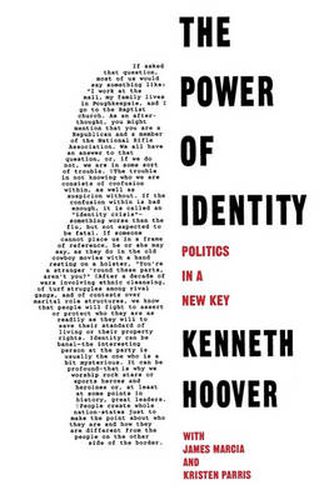Readings Newsletter
Become a Readings Member to make your shopping experience even easier.
Sign in or sign up for free!
You’re not far away from qualifying for FREE standard shipping within Australia
You’ve qualified for FREE standard shipping within Australia
The cart is loading…






Rarely has actual research on identity formation been used to examine what people want out of politics, though many feel that it is impossible to gain an understanding of politics without examining the role of identity. This book aims to provide the conceptual foundations for a theory of politics and public policy. The author explores the empirical conceptualizations of identity by Erik Erikson and the more recent observations of Carol Gilligan and other feminist writers. He brings these together with social psychological findings on identity and shows what it all means for democracy in a multicultural society. The author also examines identity in the context of human development. Understanding the theory of identity makes it possible to focus on the shared qualities of groups rather than the differences. The concluding chapters focus on relationships between democratization and identity and on the rethinking of public policy as a means for supporting integral processes of human development. The second part of the book offers chapters that aim to help the student understand the evidence for this theory and its uses in political analysis.
$9.00 standard shipping within Australia
FREE standard shipping within Australia for orders over $100.00
Express & International shipping calculated at checkout
Rarely has actual research on identity formation been used to examine what people want out of politics, though many feel that it is impossible to gain an understanding of politics without examining the role of identity. This book aims to provide the conceptual foundations for a theory of politics and public policy. The author explores the empirical conceptualizations of identity by Erik Erikson and the more recent observations of Carol Gilligan and other feminist writers. He brings these together with social psychological findings on identity and shows what it all means for democracy in a multicultural society. The author also examines identity in the context of human development. Understanding the theory of identity makes it possible to focus on the shared qualities of groups rather than the differences. The concluding chapters focus on relationships between democratization and identity and on the rethinking of public policy as a means for supporting integral processes of human development. The second part of the book offers chapters that aim to help the student understand the evidence for this theory and its uses in political analysis.